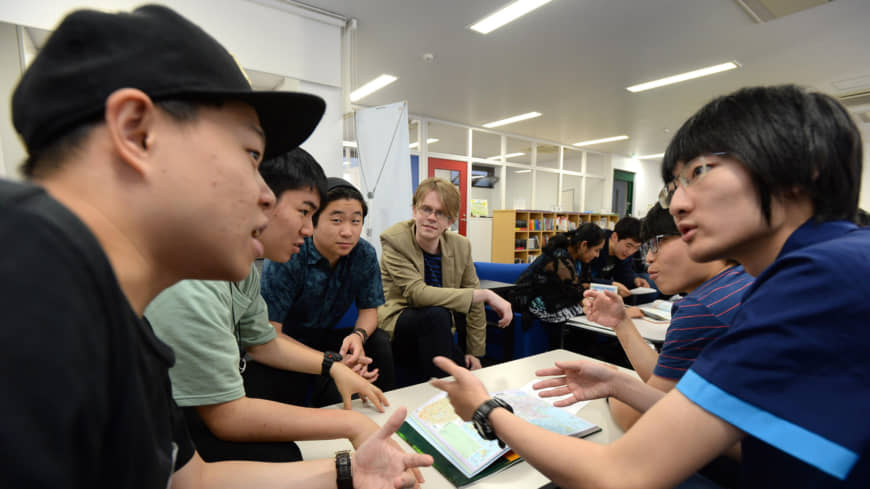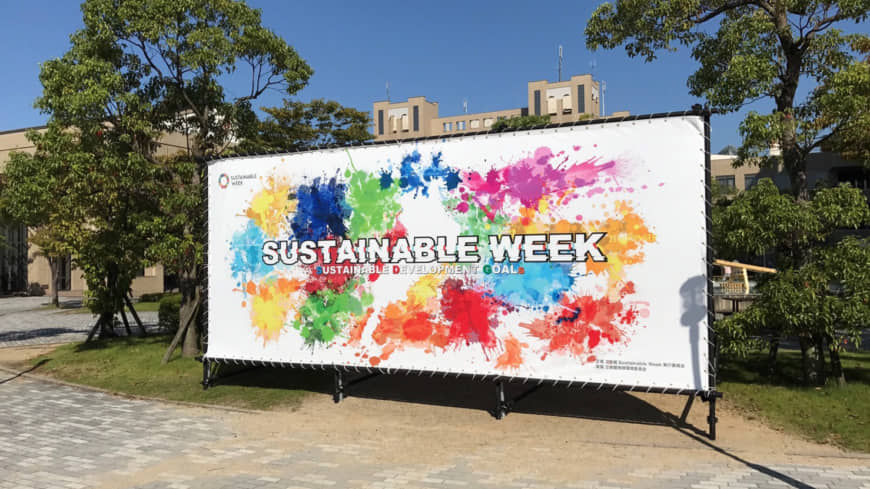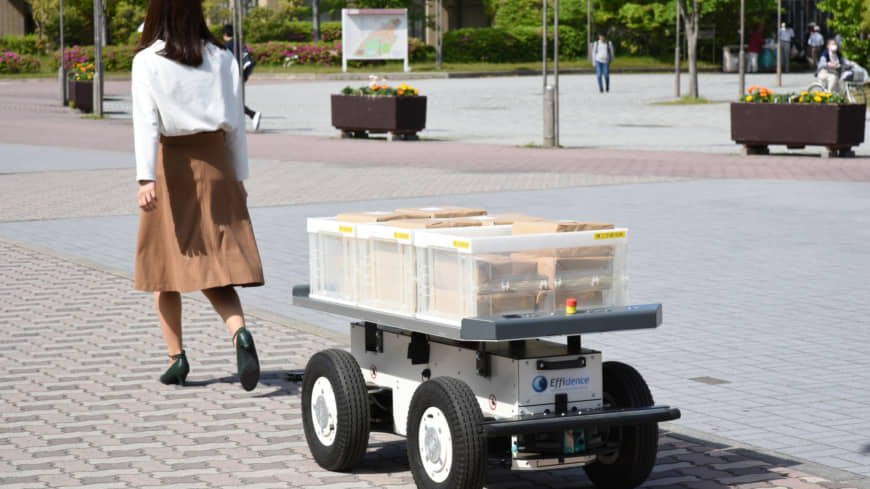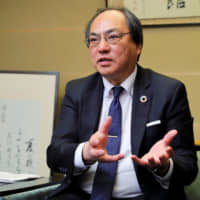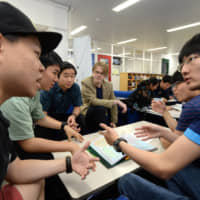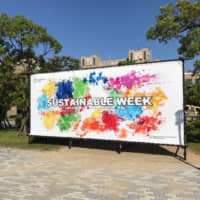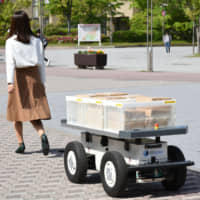As the international community faces multitudes of environmental, economic and social challenges, universities are tasked with cultivating global citizens equipped with the knowledge and sensibilities required to develop effective solutions. To this end, Ritsumeikan University is building upon its firm foundation in global education, providing students with a learning environment where they can unlock their potential and connect with the world.
A major theme of the educational initiatives pursued by Ritsumeikan University is the ever-changing nature of knowledge. “Our current times call on us to examine how knowledge itself — for instance, how it is acquired and used to express ourselves — is changing,” said Ritsumeikan University President Yoshio Nakatani. “The future is uncertain, and therefore our global society needs individuals who can discover meaning and use it to formulate solutions that can be applied to society.”
Of crucial importance to the university is enabling students to develop a global sensibility, an awareness that what they experience in their everyday lives is part of a larger global context. Meaningful, real-life experiences are the building blocks of this sensibility, Nakatani observed. “Whether in the digital or physical world, it is vital that students experience a wide spectrum of emotions such as joy, sadness and confusion, in order to develop empathy and an awareness of the varied value systems and ways of thinking that exist in our world.”
Diversity focus
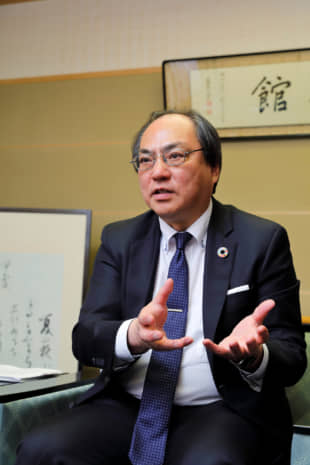
Nakatani added that diversity plays an important role in cultivating this global-oriented empathy, which is why Ritsumeikan University has consistently focused its efforts on welcoming international students from around the world and creating abundant opportunities for Japanese students to study abroad. It is with this very much in mind that the university established a brand new college, the College of Global Liberal Arts (GLA) in April this year, in addition to the establishment of its new Joint Degree Program in its College of International Relations in April 2018. Both represent an increasing move toward deep and lasting collaboration with top global universities — the former with The Australian National University, the latter with American University.
These efforts are part of the university’s vision to spur globalization in the everyday lives of students. “It is essential that we interpret the happenings in our everyday lives as ones that connect us to the rest of the world. This awareness will lead us to solutions, which will in turn lead to true globalization for the betterment of all,” Nakatani noted.
This vision of the university, of incorporating globalization in the lives of students, is reflected in various initiatives across each and every campus. One example is Sustainable Week, a yearly event where student associations come together to develop and present plans that address specific U.N. Sustainable Development Goals. These presentations span a wide array of topics, from addressing gender inequality through athletics to spreading awareness of areas affected by water shortages, and they have attracted thousands of visitors every year since the event’s first iteration in 2017.
Nakatani emphasized the facilitating role of the university in such events by saying, “We support students — for instance, by providing consultation when necessary — so that they can develop their own solutions.” One presentation at Sustainable Week that left a lasting impression on Nakatani centered on the goal of providing quality education to children. To this end, one student association provided a platform for elementary and junior high school children to express their thoughts, in English, on the importance of sustainability. Along the way, university students assisted these children with their English, thus supporting the educational development of children in their community and igniting an important spark within these adolescents to think about sustainability and express themselves.
It is these kinds of sparks of inspiration, as seen in the Sustainable Week presentations, that lie at the center of Ritsumeikan University’s initiative to highlight the interesting activities taking place within the university. An example of activities is the test introduction of service robots at the Biwako-Kusatsu Campus. In collaboration with Mitsubishi Estate Co. Ltd., these three robots — an autonomous ground delivery robot, an automated floor-cleaning robot, and a follow-up type automated delivery robot that can haul up to 300 kilograms — have been introduced into the campus not only because of their functionality, but also to show students how cutting-edge technologies can be used to create new value.
“It is important that we excite students by visibly showing them the various activities and research that students and faculty are engaged in,” Nakatani said. “In our current times, we as a university need to be more than just a place where educators impart knowledge to students; we need to be a place that empowers students and creates the impetus for them to cultivate sensibilities so that they can develop their own solutions and even surpass their professors.”
Ritsumeikan University
Address: 1 Nishinokyo-Suzaku-cho, Nakagyo-ku, Kyoto-shi, 604-8520 Japan
Tel: +81-75-813-8146
URL: http://en.ritsumei.ac.jp/



